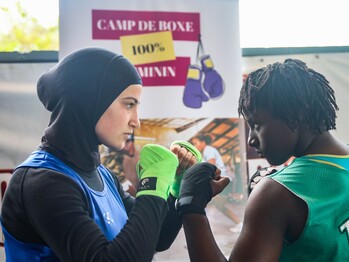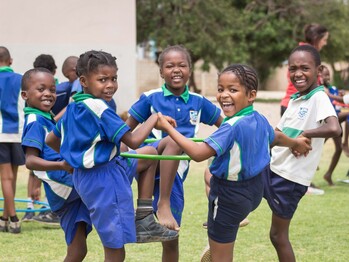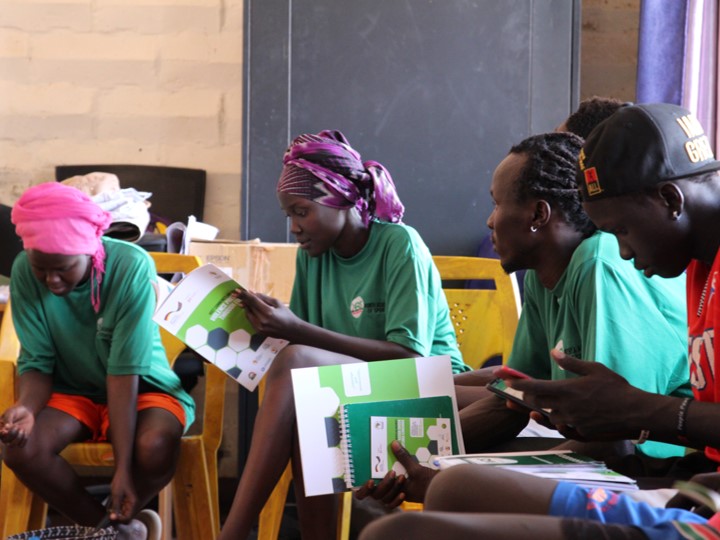Promoting equality through the power of sport
Regional Project ‘Sport for Development in Africa’ (S4DA)

Context
Women and girls are still disadvantaged and discriminated against in social, economic and political life. Limited educational and employment opportunities for girls and women prevent them from participating fully in social developments. They also suffer from gender-specific violence. The main reasons for this inequality are cultural, legal and economic barriers, which are often deeply rooted in social norms, male-dominated power structures and individual interests.
Objective
Local, national and transnational organisations in Africa are increasingly using sport-based approaches to strengthen the social and vocational skills of children, teenagers and young adults. In particular, this promotes gender equality, breaks down stereotypical gender roles and promotes a positive image of masculinity.

Approach
The project supports local and national partner organisations such as non-governmental organisations, schools and education and sports ministries in integrating Sport for Development into concepts and strategies, and also into education and sports policy.
It promotes the skills of regional players such as the Sports Council of the African Union, the OlympAfrica Foundation or Special Olympics Africa in order to better disseminate and utilise sport for development.
In cooperation with partner organisations, it is also building gender-sensitive and inclusive sports grounds, and is involving user groups in the planning process. This creates safe spaces where children, teenagers and young adults can engage in sporting activities.
The project also supports national and regional networks that use sport-based approaches to promote gender equality, reduce stereotypical gender roles and promote positive masculinity.
Safeguarding principles ensure that sporting activities take place in an environment that is free from violence and abuse and creates safe places for all.

Last update: January 2024





